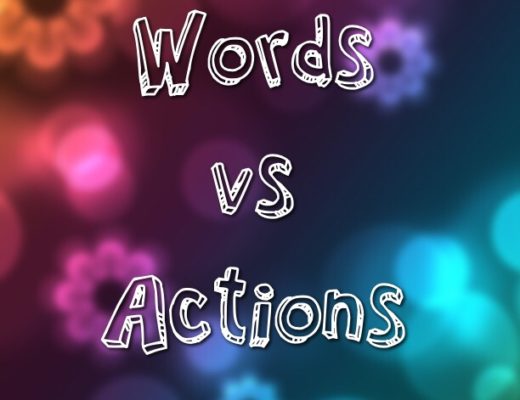Being an educator gave me an opportunity to have an up-close look at many different parenting styles. I witnessed so many great parenting strategies, as well as some not-so-great ones. Both were parenting teachers for me and gave me wisdom beyond my years.
Lesson: “Cry Now or Cry Later” is a figure of speech; however, it can be very literal too! It’s very difficult for some parents of young children to be strict or disciplined with them. Those little faces are so cute and adorable and you just want to see them smile and be happy all the time. Oftentimes when little ones do naughty things, parents are so shocked that they often laugh or shrug it off as just being child’s play. This is a fundamental mistake! Yes, children are children and a lot of times they don’t know any better, but we have to use those moments and make them count as teachable moments that will instruct them to know better. In addition, when they do know better and they choose not to do better, parents have to have reasonable consequences in place that the child is aware of prior to the infraction. This way they are not surprised when there is a consequence for their behavior. Although it may be difficult, the sooner parents set boundaries and start disciplining their children, the better off the child will be in the long run.
“Cry now or cry later” is a phrase I used to use with some of my student’s parents when I was trying to help them stick to rules and consequences for negative behavior with their children. It may seem like a no-brainer but I’ve witnessed some parents really struggle with disciplining their children. I once had a mom tell me that she didn’t want her daughter to be mad at her because it hurt her (the mom’s) feelings and made her cry when her daughter got angry at her for disciplining her. I quickly replied and said, “You can cry now or you can cry later.” If parents choose not to discipline their children when an opportunity arises, they will be crying from a broken heart later when their children are adults making undisciplined decisions resulting in adult consequences.
Most often, parents that are reluctant to follow through with consequences when their children are young eventually regret it as their children grow to be teenagers and adults. Undisciplined children turn into undisciplined adults that become the society’s problem. Teaching your children that negative behavior has consequences at a young age prepares them for the real world. I once asked a parent of one of my young male students, “Do you want to teach him and hold him accountable or do you want the authorities to have to teach him and hold him accountable?” It’s never too late, until it is too late!
Action Step(s): Reflect on how you hold your children accountable. For Example, Ask yourself do you have clear expectations for your child’s behavior and conduct? Ask your self do you have clear consequences for misbehavior? If these two things aren’t in place then start here! It’s important that your child knows what you expect from their behavior and what consequences they will receive if they break the rules. Write down your expectations for behavior at school, expectations for respect at home & with family members and any other area where you think rules and expectations are needed. Once you’ve written your expectations, then come-up with reasonable consequences that you will be able to follow-through with. Follow-through is key!




No Comments